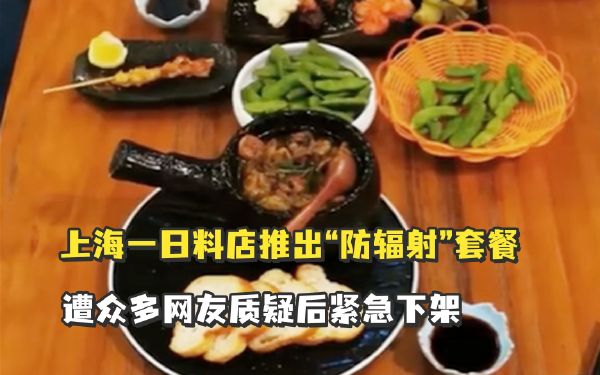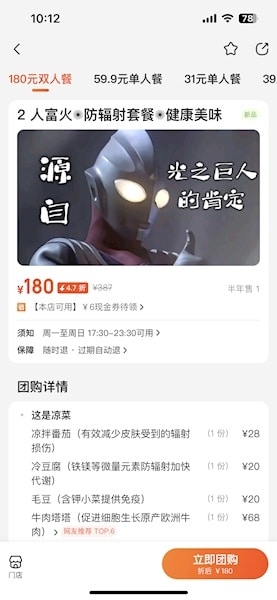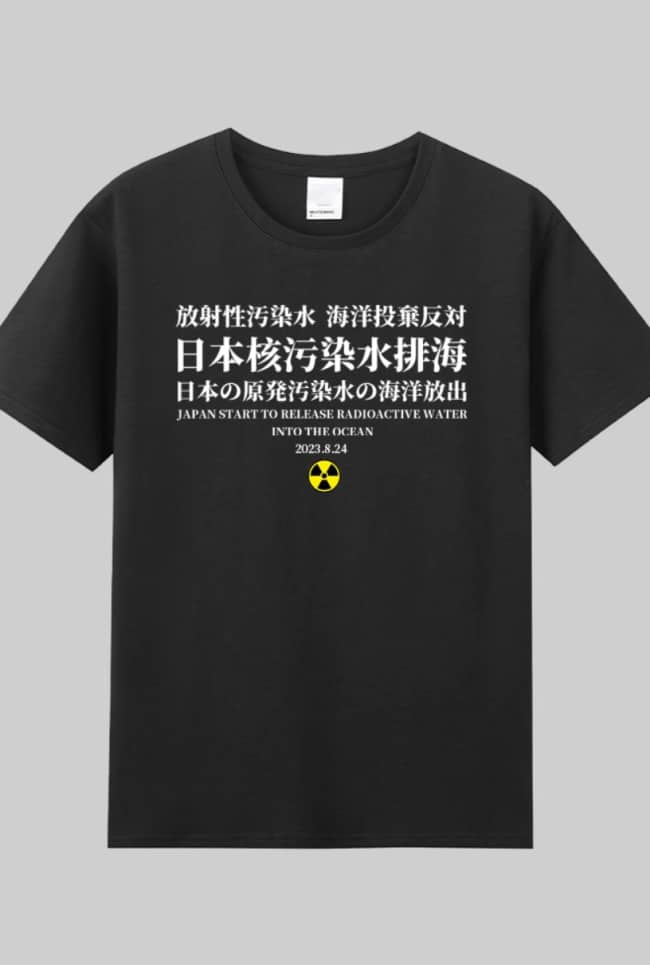Since August 24th, when Japan started the release of treated radioactive water from the damaged Fukushima power plant into the ocean, a myriad of related topics have surged across Chinese social media platforms.
The dissemination of news concerning the Fukushima wastewater discharge, amplified by Chinese media outlets, has sparked considerable unrest in various ways.
Among these is the phenomenon of salt hoarding. There have been dozens of posts on Weibo showing extreme examples of people stockpiling salt. In some places, people queued for up to an hour to buy salt while early-bird shoppers left stores with heavily laden shopping carts.
China also saw instances of salt hoarding in 2011, just after the tsunami and Fukushima disaster. Some people equate ‘salt’ to ‘sea salt’ and they are concerned that salt stocks could potentially become contaminated due to the Fukushima wastewater. But there is also a general belief that salt consumption could provide protection against exposure to radioactivity.
Nonetheless, regular table salt does not actually provide protection against radiation, and consuming excessive amounts of iodized salt could potentially pose health risks on its own.
While scientists and critics find the recent panic to be unfounded – emphasizing that Japan’s actions fall within the safety limits of the Atomic Energy Agency and that the environmental impact is minimal, – a prevailing skepticism toward Western powers combined with official media boosting news concerning the discharge of radioactive water, ensures that Fukushima-related fears and misconceptions remain pervasive.
The concerns surrounding Fukushima have already had negative consequences for many business owners in China, especially for some Japanese-style restaurant owners who felt the need to change their theme, change their name, or explicitly state that their ingredients are not actually coming from Japan.
Meanwhile, there are also some who are trying to capitalize on the situation for profit.
One Japanese-style restaurant in Shanghai’s Hongqiao recently starting offering a so-called “anti radiation” set meal (“防辐射”套餐). The set meal, which was first introduced on online platform Dianping, included ingredients such as tomatoes, edamame, tofu, and spinach.

The Japanese restaurant introduced the menu on the 25th, a day after Japan started discharging the first batch of wastewater into the ocean. While various Chinese media write that there is no scientific basis for the radiation-blocking effects of these foods, the restaurant stated they no longer use any products from Japan and that ingredients used are all sourced locally.

According to various news posts, the restaurant compiled the menu through research and seeking advice from a nutritionist. The restaurant also associated each dish with particular benefits, including claims of “reducing skin damage” or “stimulating cell growth.”
But soon after the restaurant had put their anti-radiation menu online, it became a big topic of discussion, with one related hashtag on Weibo getting over 140 million views (#上海一日料店上架防辐射套餐#).
“Of course, the next step is to make a quick buck by pushing anti-radiation products,” one popular comment said (using the phrase gē jiǔcài 割韭菜, ‘harvesting chives,’ also explained in our latest newsletter).
Other people wondered why one would order such a menu if you might as well cook the exact same things at home. “Why would I pay 28 yuan for tomato with seasoning?”
Meanwhile, Chinese media outlets, citing legal experts, focused more on the legal problems surrounding the menu, suggesting that making false claims is against the law.
Following the controversy, the restaurant has now pulled its menu offline.
Nonetheless, the restaurant won’t be the first or the last business owner to profit from Fukushima fear and anger. While some are selling anti-radiation tablets, others are selling t-shirts with slogans opposing Japan’s decision to discharge the wastewater.

T-shirt sold on Taobao opposing the “ocean dumping” of Fukushima wastewater (screenshot via Whatsonweibo).
On Weibo, local authorities and media accounts are cautioning consumers against purchasing ineffective products that offer no protection against radiation exposure, reiterating that buying loads of salt will not help either.
By Manya Koetse
Get the story behind the hashtag. Subscribe to What’s on Weibo here to receive our newsletter and get access to our latest articles:
Spotted a mistake or want to add something? Please let us know in comments below or email us. First-time commenters, please be patient – we will have to manually approve your comment before it appears.
©2023 Whatsonweibo. All rights reserved. Do not reproduce our content without permission – you can contact us at info@whatsonweibo.com.
The post Japanese Restaurant in Shanghai Faces Backlash for Offering “Anti-Radiation” Meals appeared first on What's on Weibo.